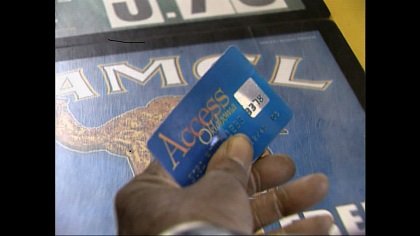CNN — After the vote in the House of Representatives to slash the Supplemental Nutrition Assistance Program, I wrote a column against cutting food stamps. This column generated more than 5,200 online comments and hundreds of e-mails.
Comments reflected, not surprisingly, the tone and tenor of the political debate: a lot of partisan passion, some mutual understanding, animosity based on stereotypes and a lot of misinformation.
I would like to address some of the typical concerns that were expressed.
For example, “Willis CurryFans” wrote, “These wealthy Republicans spend a lot of time RUNNING from the typical black person this affects. If they came and visited some of these neighborhoods, they would see folks that they KNOW they won’t give a job to.”
But who are the people using food stamps? They’re us.
The Census Bureau, which gathers statistics house by house, reports that Americans on food stamps are 49% white, 26% African-American and 20% Hispanic. The Pew Research Center, a nonprofit polling firm, found in a July survey that self-identified liberals, moderates and conservatives who receive food stamps are in a statistical tie.
A lot of people who commented on the column wanted to regulate what foodstuffs program participants can buy — often not realizing that alcohol and prepared foods are banned. And many respondents bashed food stamp recipients, declaring they should “get a job,” “stop having kids on my dime” or giving a variation on such cliches.
“Chiefpr” writes to one reader who’s been out of work: “Get training to better yourself and DO NOT have kids until you can feed them. But do not demand I do all that and support you …”
But the truth refutes the cliches: Feeding America says participation in SNAP, or the food stamp program, “historically follows unemployment with a slight lag.”
Unemployment increases food stamp rolls, not people with children who go looking for aid.
And unemployment has been abnormally high because of the recession that began under the previous president. In fact, USA Today found that “under President George W. Bush, the number of recipients rose by nearly 14.7 million. Nothing before comes close to that.”
With employment increasing, “the Congressional Budget Offices projects SNAP participation to begin declining in 2015.”
Shaun Kirkpatrick commented: “There was a work requirement for welfare. Bill Clinton did that during his welfare reform that most working people applauded. To make sure he got the votes and make Republicans look greedy and evil, Obama removed the work requirement …” Kirkpatrick’s perception is prevalent on the Web.
But that information comes from a 2012 Mitt Romney political ad that got it dead wrong. Obama actually encouraged the states to strengthen their work requirements. Also, of course, welfare is not the same as food stamps.
As for food stamps, more than 72% of all SNAP beneficiaries are families with children. Most of the recipients are children (48%), the elderly (8%) and the disabled. Less than 10% of food stamp recipients receive welfare payments.
“John in WNY” wrote, “Yes, many do work, but many of them make sure they never make enough to lose their benefits …”
Again, the facts refute the assumption.
SNAP has strict time limits for unemployed workers: Able-bodied adults without children can only get three months worth of food stamps in a three-year period, unless working in a qualifying job training program.
And how much are the benefits, anyway?
The average monthly SNAP benefit per person is $133.85, or less than $1.50 per person per meal. Those benefits are low, and for many families, SNAP benefits don’t last the whole month.
Why do we need to support the food stamp program?
Because low-income families experience unemployment at a far higher rate than other income groups. Because cutting nutritional assistance programs is immoral and shortsighted and protecting families from hunger improves their health and educational outcomes. Food stamps are an investment in our future.
Being on food stamps can be demeaning.
Cashiers know the difference between the new plastic SNAP cards and a credit card. Some food stamp recipients say some cashiers have made them feel uncomfortable and embarrassed.
Maybe we should focus on rewards rather than punishments. Behavioral psychologists say that’s more effective.
Why not add benefits for making healthy food choices, provide a transition bonus for getting off food stamps or increase job training opportunities and income — raising minimum wage?
Doing so takes courage, compassion and believing in “We, the people.”
Join us on Facebook/CNNOpinion.
The opinions expressed in this commentary are solely those of Donna Brazile.
Donna Brazile, a CNN contributor and a Democratic strategist, is vice chairwoman for voter registration and participation at the Democratic National Committee. She is a nationally syndicated columnist, an adjunct professor at Georgetown University and author of “Cooking With Grease: Stirring the Pot in America.” She was manager for the Gore-Lieberman presidential campaign in 2000.
The-CNN-Wire
™ & © 2013 Cable News Network, Inc., a Time Warner Company. All rights reserved.
